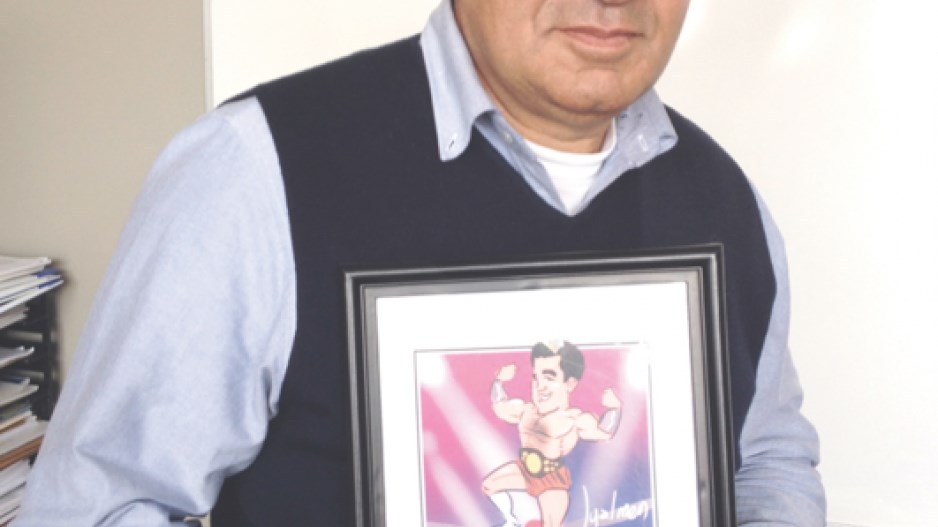Across from Jyalmen Sidhho’s desk at the International Longshore and Warehouse Union office in east Vancouver hangs a framed drawing of a man baring his chest inside a wrestling ring.
A closer inspection reveals it’s Sidhho in the picture — a tribute to the ILWU secretary-treasurer’s days as a professional wrestler in the ’70s and ’80s.
“I came (to Vancouver) on a wrestling contract,” the U.K. native said.
“Maybe a greater power was bringing me to this job.”
His prowess in the ring notwithstanding, the 63-year-old didn’t join the union executive more than a decade ago to get involved in any strong-arm tactics at the negotiation table.
Rather, working conditions were much less desirable when he started at the port 34 years ago. Devoting himself to his union brothers and sisters is his way of giving back to the industry that allowed him to attend all his kids’ parent-teacher meetings.
Sidhho said there have been vast improvements in health and welfare for union members during his time as a longshoreman, but he admitted the future of the industry is harder to predict — especially since ports throughout the world are becoming increasingly mechanized.
“Technologically, it’s changed quite a bit. When I first started, there were a lot more physical jobs out on the docks which no longer exist because a lot of loading and unloading of containers is being done offsite,” the Surrey resident said, adding a shift in job structures is a necessary as port facilities become more mechanized.
“We would be most willing to work with the employers and get re-training for some of our members to work on the maintenance of the new technology,” Sidhho said.
“I can’t see there not being a need (for manpower) because I think the companies are driven towards creating the so-called “super longshoreman” who can perform any and all duties.”
He said cross-training longshoremen in multiple duties isn’t a concern. It allows union members to take on work at another site if there are job shortages.
“It just means that the strictly (labour-intensive) jobs are being threatened,” he said.
Although Sidhho retires in June, the welfare of his union brothers and sisters will remain on his mind.
Too often as a union official he’s seen longshoremen get trapped enjoying the freedom the job permits. People show up looking for work on days it’s convenient, while others become consumed with making as much money as possible.
“When they go into that dispatch hall and it becomes their life, and they’re back every day and they don’t take a day off…we’ve seen marriages break up,” he said.
“But I’m not saying everybody’s like that. The majority of people keep a balance, a nice balance, a good balance.”




